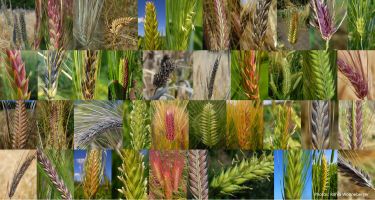Plants

Sciences & Technology
Research
The time is ripe for chronoculture
A better understanding of circadian rhythms in crop plants can help improve agricultural production

Arts & Culture
Under the Microscope
The journey of a master dyer
The tradition of Bhutanese organic dyeing is gradually disappearing. But master dyer, Kencho Dekar, is working with the Grimwade Centre to preserve the vibrant colours and stories in Bhutanese textiles

Sciences & Technology
Under the Microscope
How Australia’s ancient forests became an arid zone
Studying the genetic relationships between desert plants is helping Dr Rachael Fowler to understand how they evolved in Australia’s arid zone, once dense forest

Sciences & Technology
New genomic toolkit set to boost Australian crop industry
Scientists are in a battle to keep the world’s food supply dependable, and new research into crop genomes is helping to lead the way

Sciences & Technology
Going back to the future for food crops
New sensing techniques can detect drought tolerance in ancient relatives of wheat and barley. Making it possible to use these traits to breed new food crops for a warmer world

Sciences & Technology
Understanding how fire shapes plants will help protect them
A new approach predicts how plants respond to fire, helping scientists, land managers and the community protect thousands of species from biodiversity loss

Environment
The past gives us a glimpse of our future, hotter planet
Fossil pollen preserved in rocks for 56 million years provides new insights into the consequences of carbon-fuelled global warming

Environment
Woody Meadows greening our cities the right way
Public spaces across Australia are being planted with beautiful, practical, native Woody Meadows

Sciences & Technology
Drugging plants to learn their secrets
Discovering chemicals that affect plant circadian rhythms could improve crop yields – bringing us a step closer to ‘chronoculture’

Sciences & Technology
The challenge to discover our plant and fungi species
There are still thousands of Australian plant and fungi species to be described and citizen scientists are contributing to recording our biodiversity